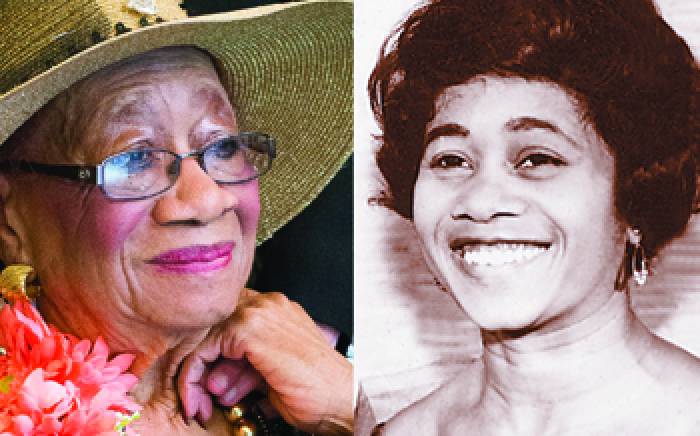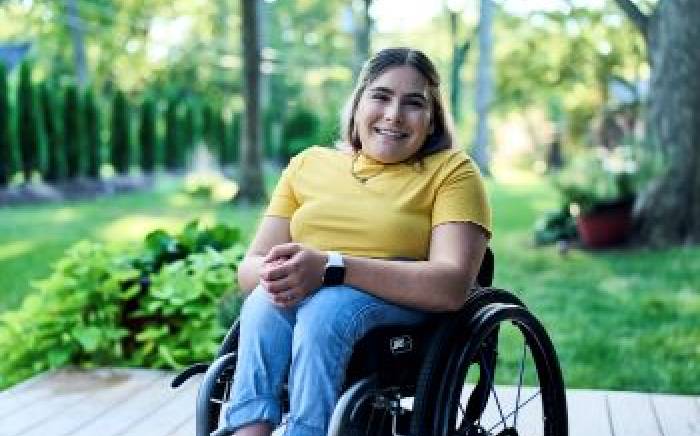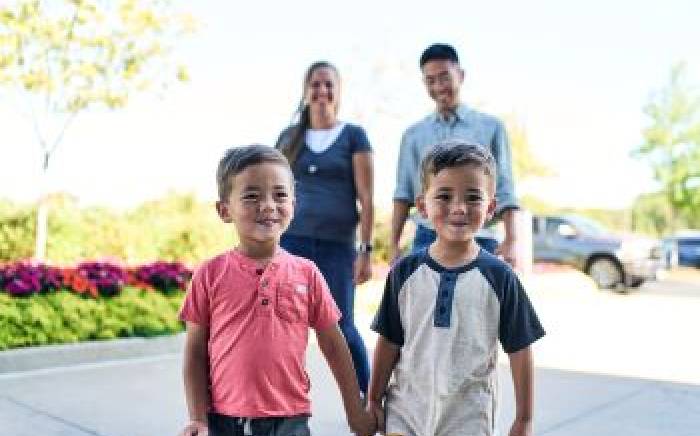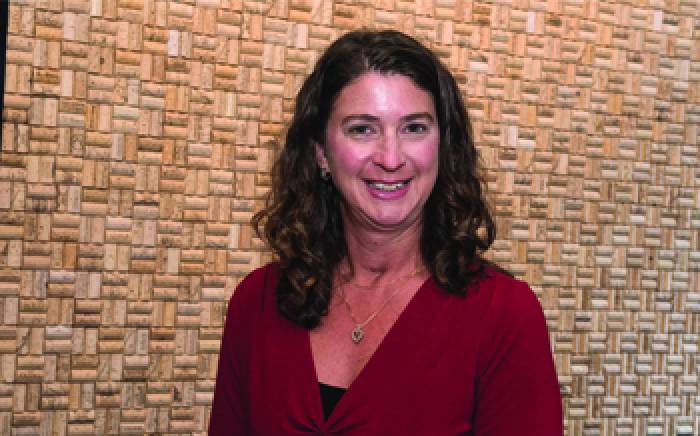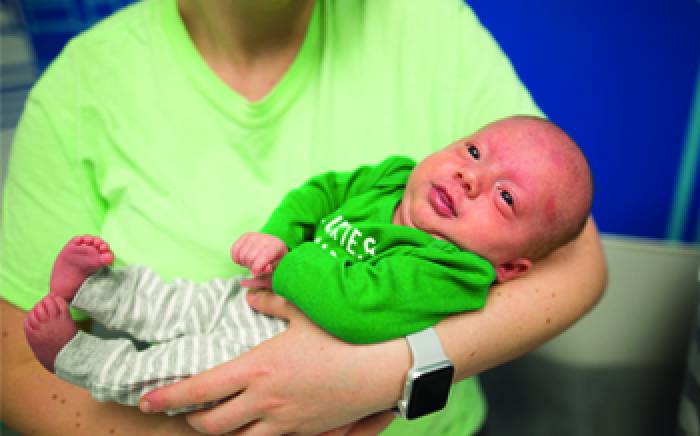 During a routine sonogram, Mike and Leslie Macari were told something was wrong. Their baby was too small. Her skull was shaped abnormally, and there was evidence of potential heart problems. An amniocentesis procedure performed to rule out chromosomal abnormalities revealed nothing. Other tests were also inconclusive.
During a routine sonogram, Mike and Leslie Macari were told something was wrong. Their baby was too small. Her skull was shaped abnormally, and there was evidence of potential heart problems. An amniocentesis procedure performed to rule out chromosomal abnormalities revealed nothing. Other tests were also inconclusive.
So the Macaris waited, and on June 23, 2016, their daughter Gabrielle was born. At only 3 lbs., 12 oz., she was transported to Children’s, where the neonatal intensive care team would be tasked with helping little Gabby gain weight and begin to thrive.
As Gabby struggled, an array of specialists visited to see if they could offer their expertise and help provide a diagnosis.
“We were told that, with all the different things going on with Gabby, we were probably looking at some sort of syndrome,” says Mike. “However, Gabby’s symptoms didn’t match up with any known disease. As a parent, not knowing what is wrong with your child is very difficult.“
The genetics team eventually gave Gabby a clinical diagnosis of neonatal progeroid syndrome (Wiedemann-Rautenstrauch syndrome), a very rare disease that has been found in only 40 documented cases throughout the world. Among other things, this rare genetic syndrome is characterized by an aged appearance at birth, severe growth restrictions and a shortened life span. Most infants don’t live longer than 7 months.
 Looking for hope, Mike and Leslie decided to participate in a CDI-supported study designed to peel back the onion of a family’s genome to provide them with long-sought answers. Sequencing revealed that Gabby had variants in the POLR3A gene. Deeper digging uncovered other families throughout the world who had children with the same diagnosis, and the CDI’s genetic testing of these other children verified their gene variants were similar to Gabby’s. One of these families had a 16-year-old with this syndrome. “The Genomics of Birth Defects study by the CDI has allowed us to find answers we have sought for a very, very long time about our daughter,” Mike says. “It has allowed us to have hope and find other families who share in our extraordinary journey. It has given them hope as well.”
Looking for hope, Mike and Leslie decided to participate in a CDI-supported study designed to peel back the onion of a family’s genome to provide them with long-sought answers. Sequencing revealed that Gabby had variants in the POLR3A gene. Deeper digging uncovered other families throughout the world who had children with the same diagnosis, and the CDI’s genetic testing of these other children verified their gene variants were similar to Gabby’s. One of these families had a 16-year-old with this syndrome. “The Genomics of Birth Defects study by the CDI has allowed us to find answers we have sought for a very, very long time about our daughter,” Mike says. “It has allowed us to have hope and find other families who share in our extraordinary journey. It has given them hope as well.”
“Plus,” Mike adds, “Gabby now has the opportunity to leave a lasting legacy of making the world a better place for children. She has already made an important and inspiring contribution to science. Suddenly, Gabby’s prognosis went from 7 months to the sky’s the limit.”
The Macaris stayed busy enjoying a happy little girl, who celebrated her first birthday with a taste of pink frosting from a cupcake she shared with her mom, dad and older brother. Years later, Gabby happily got off the bus from her first days at kindergarten and enjoys playing with her brother and little sister.


